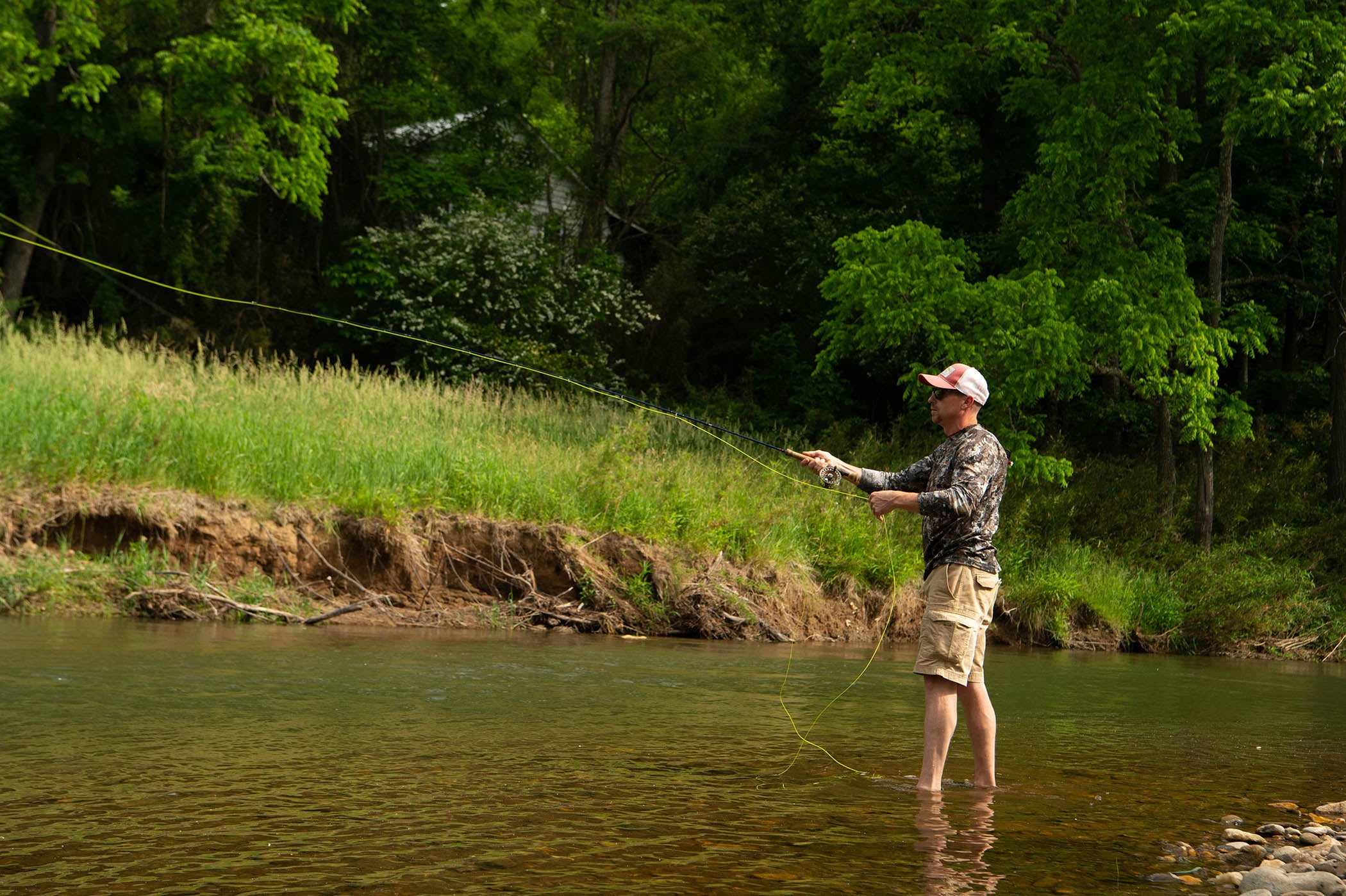‘Keeper’ season on delayed-harvest trout waters opens in 10 days
Published 12:00 am Thursday, May 25, 2023

- The N.C. Wildlife Resources Commission has stocked more than 66,000 trout in streams and lakes in northwest North Carolina in preparation for the June 3 opening of the delayed-harvest season. - Submitted
|
Getting your Trinity Audio player ready...
|
By Dan Kibler
Fishermen who complain that streams in North Carolina’s mountains don’t have enough trout to catch had better think again.
On June 3, some of the most-heavily stocked streams and lakes in western and northwestern North Carolina will be open for business — with thousands of trout patrolling their water.
The N.C. Wildlife Resources Commission will open for harvest 34 trout streams and two lakes on June 3, which is a Saturday, as part of its delayed-harvest program.
Fishing will begin at 6 a.m. for youth under age 18. At noon, the season will open for all fishermen on the streams, which are managed as catch-and-release only from Oct. 1 through the first Friday in June.
Marked by black-and-white, diamond-shaped signs, the delayed-harvest waters are among the most-popular streams in North Carolina thanks to a program that began in 1992 on four streams, one of them being the East Prong Roaring River in Stone Mountain State Park. Expansion began in 1996 and has continued another 25 years, with more streams entering the program because of public requests or opportunities that commission biologists recognize.
One factor that has directed many streams into the program is that many are at low-enough elevations or have different characteristics that make it difficult for trout — stocked or wild — to survive through the heat of the summer. That also explains the timing of the opening of delayed-harvest streams, which receive enough fishing pressure that a majority of the fish stocked from March through May and in the fall will be removed by fishermen.
The commission stocks delayed-harvest streams at a higher rate than hatchery supported streams. When the harvest season begins, fishermen can keep a daily creel limit of seven fish, with no gear or bait restrictions and no minimum size limits. The 6-hour head start for youth fishermen was approved several years ago to try and promote special fishing opportunities for young fishermen before the general public gets a chance to knock out a lot of the stocked fish.
More than a dozen streams and two lakes in seven counties in northwest North Carolina are part of the delayed-harvest program and are most-easily available to anglers in Forsyth County. From March to May, the Commission stocks better than 66,000 fish in those streams: 40% rainbow trout, 40% brook trout and 20% brown trout — owing to the relative difficulty in growing brown trout in hatchery conditions.
During the March-to-May time frame, Wilson Creek in Caldwell County north of Lenoir gets stocked with the most fish of any stream in those counties, 13,620.
Here is a county-by-county list of streams managed under delayed-harvest regulations, plus the number of fish stocked from March through May.
• Alleghany County: Little River, 4,500
• Ashe County: Helton Creek, 11,250; Big Horse Creek, 4,425; South Fork New River, 2,700; Trout Lake, 1,500
• Burke County: Wilson Creek, 13,620
• Surry County: Ararat River 5,832; Mitchell River, 7,695
• Watauga County: Watauga River, 3,795; Lake Coffey, 1,500
• Wilkes County: East Prong Roaring River, 6,325; Stone Mountain Creek, 855; Reddies River, 3,150, Elk Creek 3,270
Almost all of the delayed-harvest streams will get additional stockings in June after the opening of the season, then they will get much-smaller stockings in the fall to put enough fish back in the waters for the catch-and-release fishing through the late fall and winter.
For a list of all delayed-harvest waters, including regulation information and stream maps, is available at www.ncwildlife.org/trout.
State looking for future game wardens
The N.C. Wildlife Resources Commission is accepting applications through June 30 for its basic law enforcement academy for anyone wishing to become a wildlife enforcement officer, also known as a game warden.
Applicants must have a high-school diploma or GED equivalent, must be at least 20 years old, pass a physical ability assessment, undergo a background investigation and complete criminal history check, and score at a 10th-grade level or higher in a standardized reading-comprehension assessment.
Applicants accepted for the academy will go through a 30-week training course beginning in January 2024 and lasting into July.
For more information, go to enforcementjobs@ncwildlife.org
More Sports





